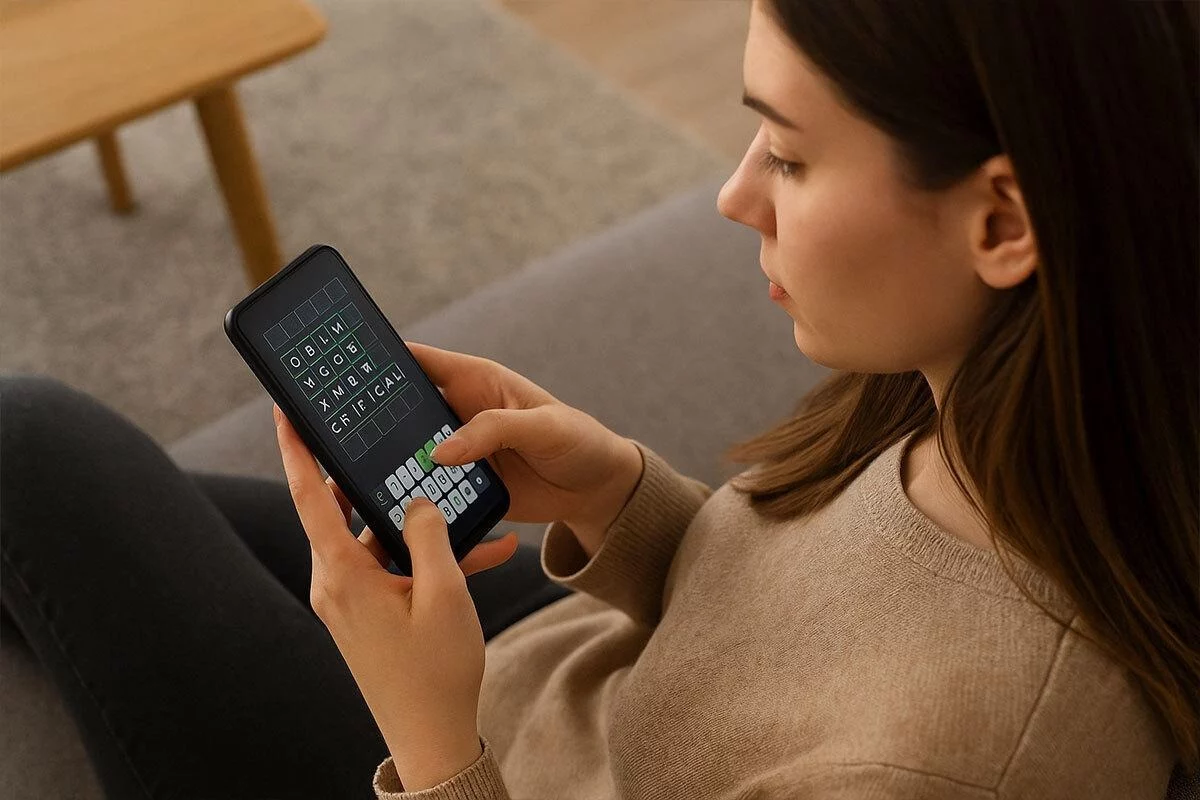There’s a reason word games have endured. They’re not just mindless entertainment, but when played correctly, they exercise the brain. Whether you’re building your vocabulary, honing your grammar, or enabling yourself to think things through more reasonably, the correct word game can be an effective mental conditioning. And here’s the great part: you don’t have to listen to stodgy grammar exercises or convoluted puzzles. With the correct balance of challenge and creativity, word games can make learning as easy as pie.
Here are some of the top word games out there that really do improve your grammar and critical thinking without you even realizing you’re doing mental reps.
21 Questions
This one’s a classic. The 21 questions game is easy at first glance, but there’s more behind the scenes. One person thinks of an object, place, or person, and the rest have up to 21 yes-or-no questions to try and guess what it is.
What makes it so useful as a tool for critical thinking is its format. You must ask questions in a manner that eliminates possibilities logically. It compels you to think categorically, construct mental decision trees, and ask increasingly specific questions based on newly received information. Meanwhile, the way you word your questions can impact communicative clarity, which engages grammar and syntax sensitivity.
It’s also surprisingly good at teaching conversation skills – how you word a question is just as important as what you ask.
Hangman
It sounds like it’s a game from yesteryear, but Hangman is still a knockout. Guessing uses a combination of strategy, vocabulary, and reason. You begin to learn common letter combinations, vowel positions, and root words.
This constructs not only word familiarity but also phonetic awareness. And when you guess words by categories – verbs, animals, adjectives – you inevitably go over grammatical concepts again. Want to make it more challenging? Try using more abstract categories or restricting guesses to words of a certain tense or form.
Bananagrams
It’s similar to Scrabble, but quicker and more versatile. You construct a crossword grid using your tiles against others. Because there is no board, it just depends on your own creation.
This proves vocabulary depth and word-building speed. It also enhances spatial reasoning and compels you to rearrange words continuously to accommodate new ones. Every new tile indirectly challenges your grammar, particularly when you are choosing between verb tenses or suffixes to make words function.
Need to increase the grammar value? Implement limitations such as only past tense verbs or at least one conjunction per grid.
Pictionary Air
In Pictionary Air, players sketch clues in the air with an electronic pen as their teammates attempt to guess what’s on their screen. No talking, just drawing.
This game compels you to break up a word’s meaning in your mind and transform it into a sight symbol. That process of translation enhances your ability to handle language differently entirely. You’re not merely considering what a word means – you’re considering how you can express that meaning without uttering it.
It’s a subtle but potent grammar drill. You begin to understand how verbs, nouns, and adjectives work as visual concepts. And you’re always responding and adjusting your communication style to fit the other person’s reception. That’s improvisation, clarity, and audience consciousness – all essential components of good language use.
Taboo
In Taboo, the players must explain a word without the use of a list of clearly related words. For instance, to explain”doctor” without mentioning “hospital,” “nurse,” or “medicine.”
This is a goldmine for critical thinking and grammar. You’re compelled to reword and think creatively, working with synonyms, examples, and definitions rather than keywords. You begin to learn how to define concepts in various grammatical structures: metaphors, relative clauses, or prepositions.
You become more skilled at picking your words carefully and making adjustments based on what your listener gets. That’s real-time communications at work.
Scrabble GO
Scrabble GO is the video game equivalent of the popular word game based on tiles. You build words on a board using letter tiles that have point values, and you play around bonus squares for the top score.
It’s grammar disguised. To play successfully, you have to understand word construction – what constitutes a plural, when adding a prefix changes the meaning of a word, and how verb tense influences suffixes. You’re spelling, conjugating, and pluralizing in the moment, simultaneously considering the board and your opponent’s next move.
It’s also a strategy game. You’re not just finding the longest word – you’re choosing the right word for the right moment. That kind of decision-making sharpens both your language skills and your ability to think critically in fast-changing scenarios.
Words With Friends 2
In Words With Friends 2, players alternately create words on a board, racing for the best score. It’s a social word puzzle that encourages clever wordplay and strategic placement.
Every word you construct is reinforcing spelling conventions and word form. You’re always considering plurals, verb forms, prefixes, and suffixes, since employing them well can be additional points. Beyond that, it forces you to maximize your moves in confined spaces, which develops logic and pattern recognition.
The game also adds daily objectives and themed challenges, which challenge you to consider more than typical vocabulary. It’s a constant challenge of how many word forms you know and how fast you can implement them under time pressure. Grammar intersects with game theory.
How to Make the Most of These Apps?
Solo reflection:
After every turn, choose a word you didn’t know. Research it, and write its grammatical function. That’s deliberate learning.
Chat it out:
Scrabble GO and WWF2 allow you to message opponents. Do it. Tell them why you played a particular word or say something about a sneaky move. Writing does that, reinforcing grammar and logic.
Challenge yourself:
Set mini-rules: only past-tense verbs for a round, or only two-syllable nouns. Suddenly, it’s a grammar boot camp disguised as a game.
Mix it up:
Switch between games. One day, you’re plotting a high-score tile placement, the next, you’re drawing “nostalgia” in mid-air to convey meaning.
Final Thoughts
The most wonderful thing about these games? They don’t constitute work. You’re laughing, competing, improvising, and all the time, you’re exercising your brain. If you value good writing, fast thinking, and good communication, these games aren’t just a blast. They’re must-haves.
You don’t have to use textbooks or grammatical apps to hone your language skills. At times, all you require is a bunch of people and the appropriate game on the table.

Lexy Summer is a talented writer with a deep passion for the art of language and storytelling. With a background in editing and content creation, Lexy has honed her skills in crafting clear, engaging, and grammatically flawless writing.



